
In the battle to keep your hair and scalp healthy, it’s always intriguing to look into new hair care treatments.
Recently, many ladies within the Curl Centric community have been talking about the benefits of using lemongrass oil for hair growth, thickness, and general scalp health. However, lemongrass oil isn’t really a new hair care treatment.
Even so, it’s making a splash, as it’s been rediscovered as an effective means of treating all kinds of hair care issues while also helping your hair look its best. So what is lemongrass, and what can it do for your hair?
Table of Contents
What Is Lemongrass Essential Oil?
Lemongrass is a member of the grass family (obviously) that comes from Africa, Asia, and Australia. Its grassy shafts can grow to around 2 meters (~6.5 feet) high. Like many essential oil extracts, lemongrass oil isn’t a new treatment. On the contrary, there is a long tradition of lemongrass oil being used in herbal medicine.
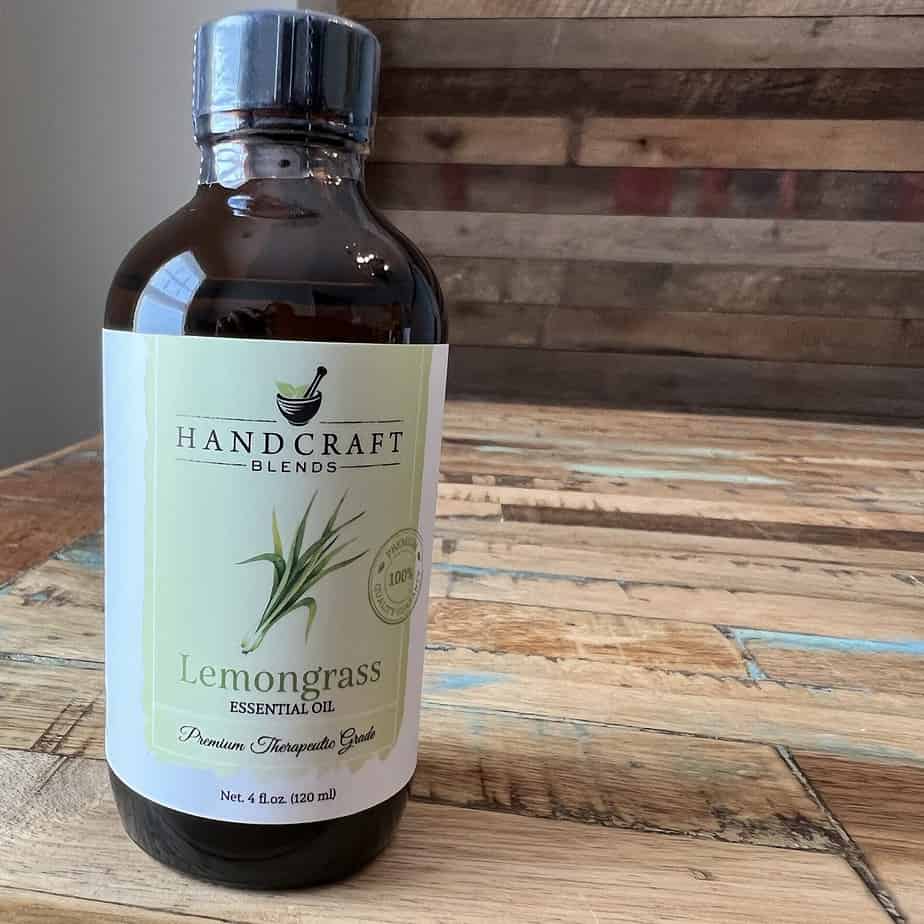
The extracted leaves of a lemongrass plant produce a strong fragrant, citrusy scent, which helps explain why it has long been used in cultures that use various forms of aromatherapy and herbal medicines.
Lemongrass isn’t just used for hair care products, either. As we’ll see below, its anti-inflammatory properties and other benefits make it a worthwhile product for those dealing with digestive issues, elevated blood pressure, and other health problems.
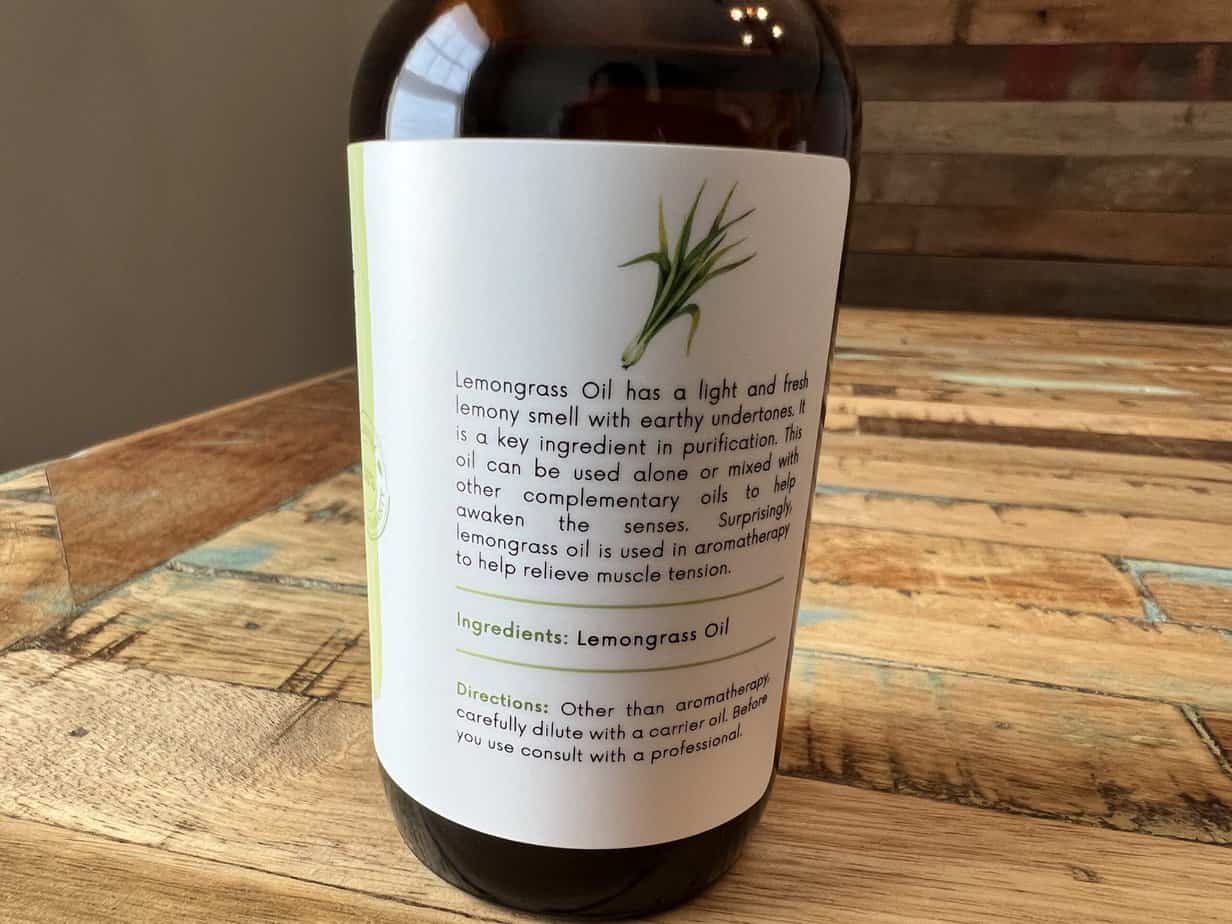
Why Try Lemongrass Oil?
There are many reasons why extracted lemongrass oil is so well-beloved among advocates of all-natural approaches to hair care, especially in opposition to more chemical-based shampoos and solutions.
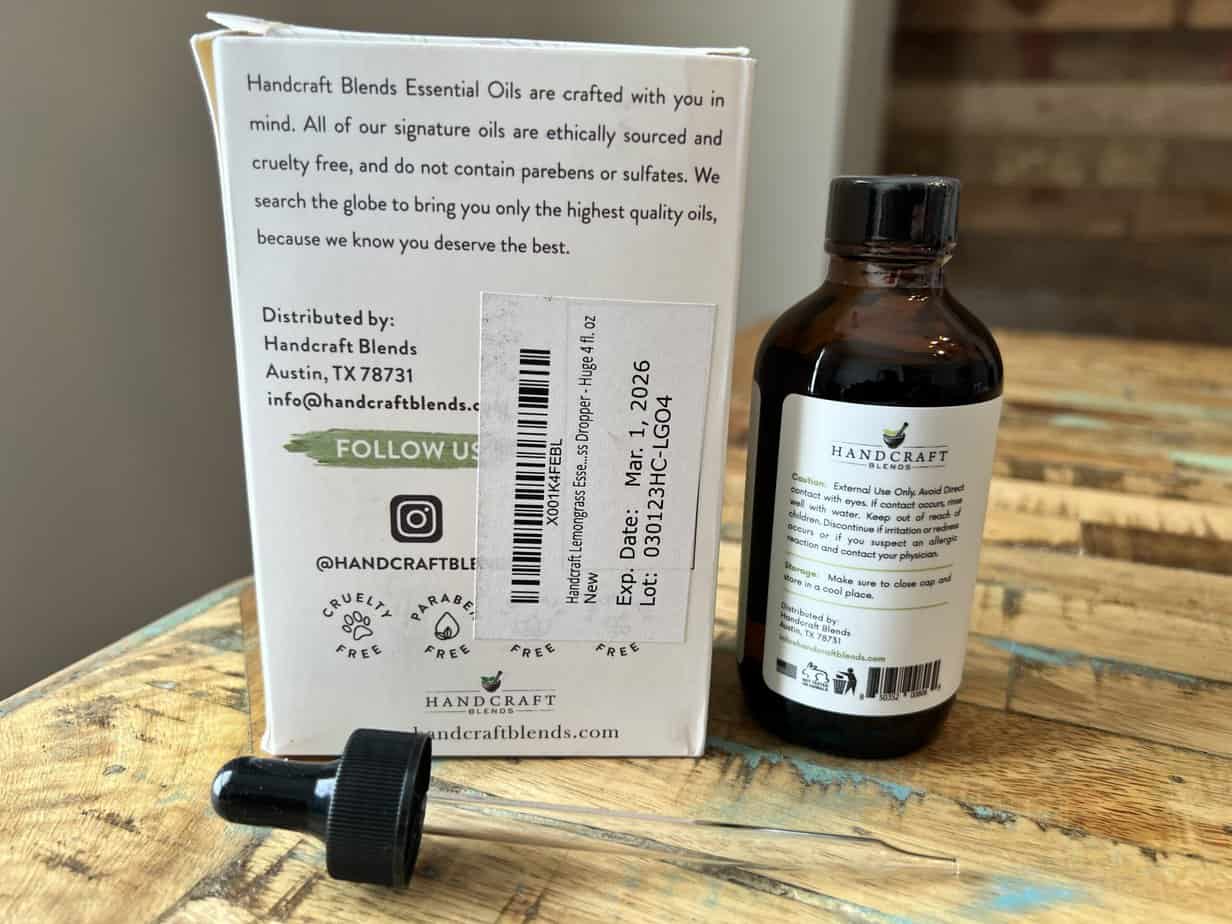
While it’s fallacious to think that all chemicals are harmful, resistance to more chemical-based shampoos and the problems they can pose give added support to those using all-natural hair care products whenever possible.
Some chemical-based shampoos can cause irritation, especially in sensitive areas such as your scalp.
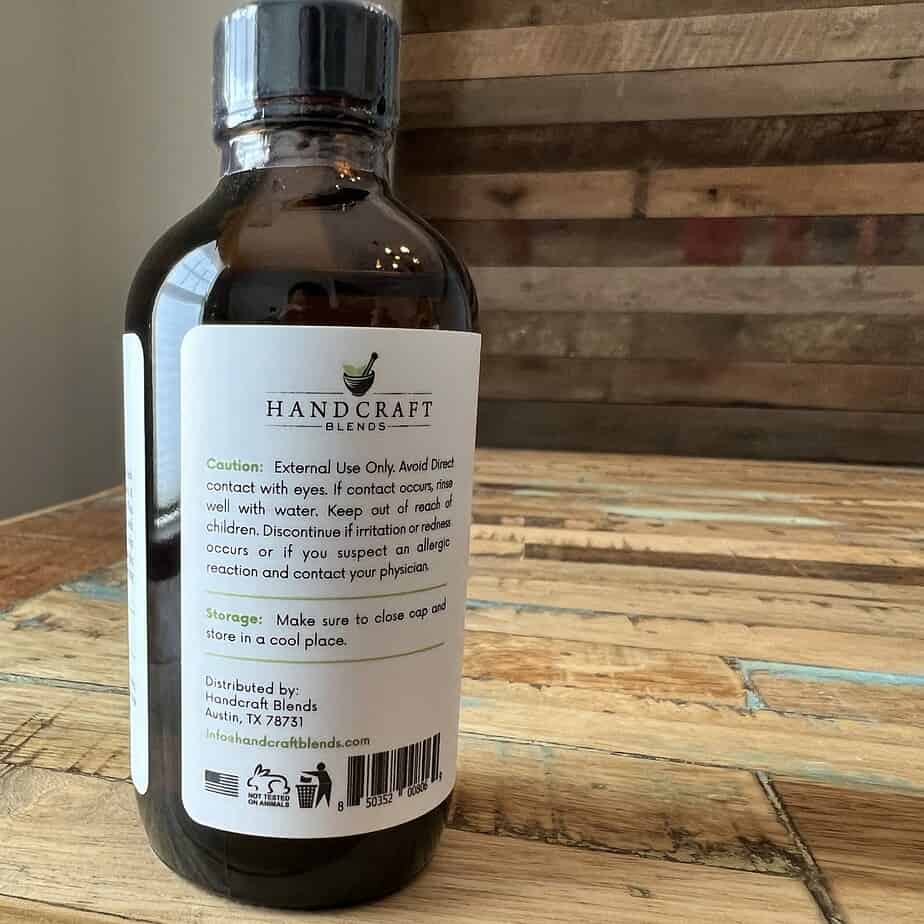
Many people find the scent of essential oil-based shampoos, such as peppermint, lavender, lemongrass, and ginger, pleasant and even soothing and reinvigorating.
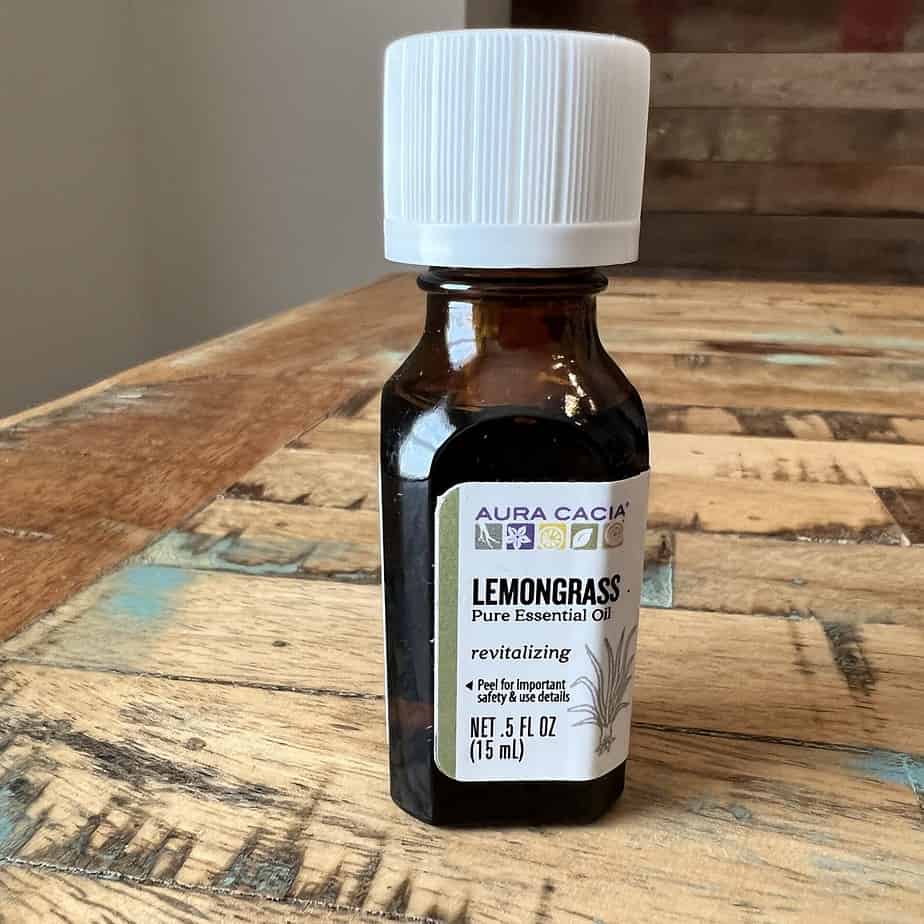
Although, fumes from some chemicals can give those sensitive to these scents headaches or even cause nausea.
Pollution is presently a major problem, so there are good ethical reasons for using all-natural, more sustainable, and environmentally friendly hair care products.
How to Use Lemongrass Oil for Hair Growth and Care
One of the most important things to keep in mind with any essential oil is that you don’t want to add lemongrass oil to your hair without diluting it first. Doing so can cause inadvertent burning and discomfort.
Instead, you want to dilute it and add only a few drops, either directly to your scalp or by mixing it into your shampoo.
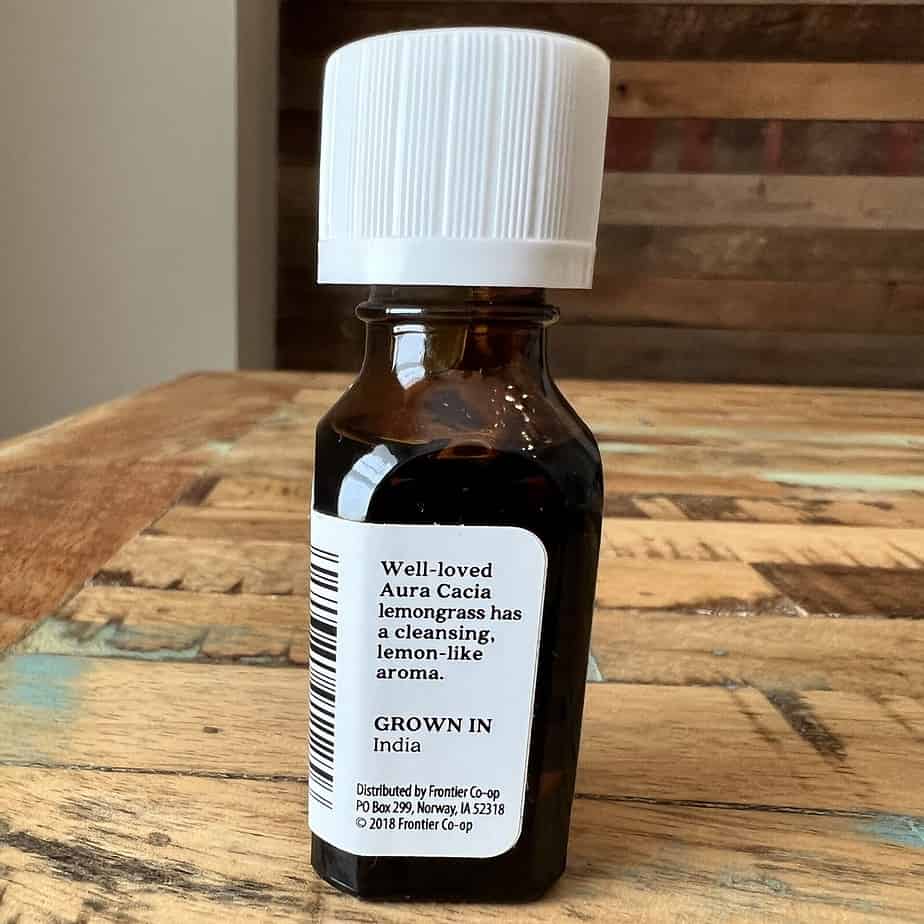
What Does Lemongrass Do for Your Hair?
1. Antibacterial and Antifungal Properties
Lemongrass has some excellent antibacterial properties. This matters because bacterial infections can be had for hair growth, to say the least.
The same goes for the antifungal properties of lemongrass. Fungal infections, just like their bacterial counterparts, can potentially cause massive health problems when left unchecked, and that includes hair care crises.
One of the most dramatic examples of this is ringworm.

As such, lemongrass’s effectiveness against ringworm gives you an incredibly important defense against a potentially devastating fungal-hair nightmare. Other bacterial and fungal infections that can cause hair care nightmares include:
- Folliculitis is a term used to describe the inflammation of hair follicles. This can manifest in acne-like rings surrounding the affected hair follicles, which in turn can fall out, ringing your hair with tiny bald spots.
- Piera, a type of fungal infection that attacks hair follicles, creates hard nodules from which more fungal spores are released. “Black” and “White” Piedra refers to the color of these spores, and when left untreated, infections can cause patchy hair.
- Seborrheic Dermatitis is a skin condition that, when left untreated on your scalp, can cause hair loss. This form of dermatitis can cause your skin to become scaly, oily, itchy, and/or painful to the touch. It is also one of several potential causes of dandruff.

While lemongrass may vary in its effectiveness and might not always be effective against all instances of these and other bacterial and fungal infections, it is nevertheless a good initial treatment to try while getting proper medical assistance.
What’s more, using it for hair care purposes may help preempt some of these conditions.
2. Combating Yeast Infections
This is yet another type of infection that can cause massive problems for the health of your hair and scalp.
A 2015 study put forth by the International Journal of Nanomedicine found lemongrass to be beneficial in inhibiting the growth of Candida albicans, a type of fungus that can help cause yeast infections.
While further studies need to be done to establish the full efficacy of lemongrass’s usefulness in treating yeast and fungal infections, studies such as these are promising signs of its potential effectiveness.

3. Anti-Inflammatory Properties
One of the biggest causes of hair loss is inflammation. Once your scalp becomes inflamed in one way or another, hair loss isn’t far behind as the skin's health and hair follicles suffer.
A 2014 study in the Libyan Journal of Medicine demonstrated lemongrass to be effective in its anti-inflammatory nature when used to treat animals.
Several other studies back this up, including a study by The Journal of Advanced Pharmaceutical Technology & Research in 2011, another by the Journal of Clinical and Diagnostic Research in 2015, and another in Phytomedicine in 2019.
On the one hand, it is important to note that these studies feature different methods of lemongrass application, and none of these studies feature lemongrass oil used as an additive in shampoos or stand-alone hair care products.
On the other hand, the science of how lemongrass oil works as an anti-inflammatory have been adopted with positive effects not just in the hair care industry but in skin care and other personal care products.
With inflammation being such a significant cause of hair loss, substances such as lemongrass serving as anti-inflammatories can help stymie scalp inflammation when used properly.

4. Fighting Dandruff
Lemongrass oil is beneficial in fighting dandruff. A 2015 study in Complementary Medicine Research conducted a “randomized, double-blind, placebo-controlled, split-head efficacy evaluation” of subjects and found that a “hair tonic formulation with 10% of lemongrass oil” was effective in treating dandruff.
5. Antioxidant Qualities
Yet another property of lemongrass that makes it good for hair care purposes is its antioxidants. You probably know how these can be beneficial for your diet, but they can also help with hair care, namely in managing free radicals.
Free radicals are “reactive molecules” that have the potential to “directly damage cellular structural membranes,” which in turn can cause hair damage to spread from damaged follicles and scalp to healthy areas.

This is where antioxidants come into play.
A 2012 study by the Journal of Photochemistry and Photobiology B: Biology noted that antioxidants from artichokes could help protect your hair from damage from UV rays as well as seal off cuticles, thus keeping your hair stronger.
Don’t have artichokes on hand? No problem – a 2015 study found that lemongrass oil can combat free radicals as well.
6. Stress Relief
There is evidence that lemongrass can provide anxiety and stress relief. Granted, this is largely through the soothing power of its lovely citrusy scent.
So, if you don’t find the scent calming, lemongrass may not help you relieve anxiety and stress. However, if it does, it can be one more weapon in your arsenal against stress-induced hair loss (or hair fall).
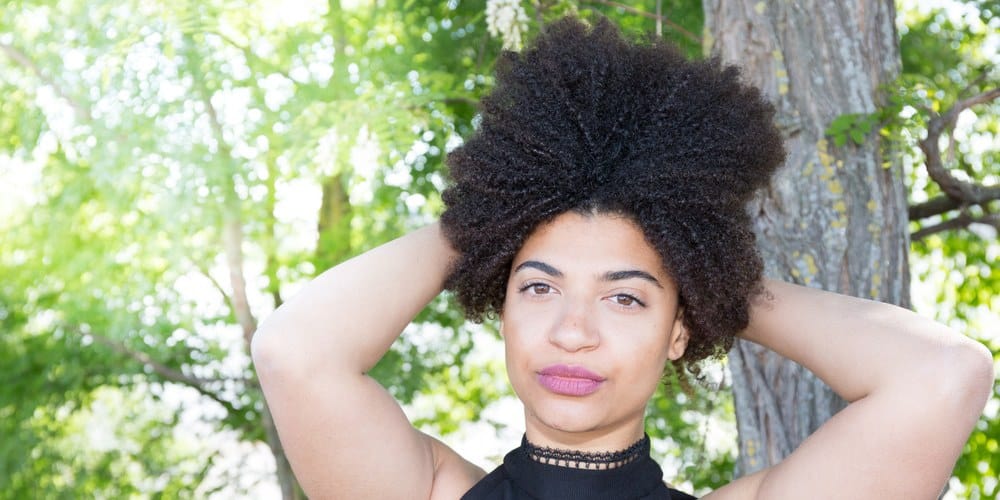
7. Promotes Hair Growth
Lemongrass can help strengthen your hair follicles as well as introduce astringent properties into your hair. The former keeps your hair healthier; the latter helps keep problematic materials out of your hair, and taken together, both of these factors can promote hair growth.
8. Rich in Vitamins
Lemongrass is also rich in vitamins A and C. Both of these vitamins can help with your long-term skin health, which in turn can help with your scalp’s health.

9. Aesthetic Qualities
Let’s be honest; hair care is more than just making sure that your hair grows healthily – you also want your hair to look and feel nice.
Lemongrass oil can give your hair a lovely silky-smooth sheen. Add to that the pleasant citrusy fragrance that comes with lemongrass, and you have an all-natural recipe for a resplendent head of hair.
10. Combating Oily Hair
Anyone who has had oily hair knows that it can be the bane of your hair care existence. Lemongrass and other essential oils can help eliminate oily substances from your hair and keep your scalp oil-free.
Some of our favorite essential oils are tea tree oil, lavender oil, rosemary oil, and neem oil. Some of our favorite carrier oils are coconut oil, jojoba oil, and olive oil.

Lemongrass Oil: Exploring Scientific the Benefits
A study in The Journal of Advanced Pharmaceutical Technology & Research found lemongrass to have “antibacterial, antidiarrheal, antifilarial, antifungal and anti-inflammatory properties,” all of which are great signs of lemongrass’s potential as an all-natural treatment.
Another study in the Journal of Medicinal Food notes that lemongrass can boost your red blood cell count and counteract anemia.
This is relevant because another study published in the Journal of Korean Medical Science notes a likely link between iron deficiency (which can go with anemia) and hair loss.
This is further elucidated by more research published in the European Journal of Dermatology, which found that, among a test group of 5,110 women aged 35 to 60, 59% were “affected by excessive hair loss…had low iron stores.”
The ability of lemongrass to boost your hemoglobin and iron count can potentially have a profound impact on those suffering from substantial hair loss.
In addition, due to its citrusy scent, lemongrass is a popular choice among those looking to add a lovely citrusy aroma to their rooms.
This, in turn, has helped lead to its use in aromatic treatments for stress, with the Memorial Sloan Kettering Cancer Center (MSKCC) noting its efficacy in fighting anxiety.

In addition to anxiety, the MSKCC has noted its potential to treat everything from sleeping problems and low blood pressure to inflammation (which can help hair growth) and infections.
The MSKCC has also noted that you should not use lemongrass if you are taking drugs containing glutathione-S-transferase substrates or cytochrome P450 substrates, as doing so may increase the chances of suffering adverse side effects with those drugs as a result of their interaction.
A 2010 study underscored the idea that lemongrass is an effective antibacterial agent.
As we’ll see, this can be a game-changer when it comes to getting your scalp in the proper condition to grow and sustain a healthy head of hair.
Another study from 1996 showed lemongrass to be effective against four different kinds of fungi, one of which could cause ringworm, athlete’s foot, and jock itch.
The latter two are not necessarily things you need to worry about infecting your hair and scalp, but they’re still things you’d obviously rather avoid.
The benefits of lemongrass don’t stop with hair care treatment.
One of the reasons essential oil extracts are so popular is that they are versatile in everyday remedies and lifestyle improvements.
Other health benefits of lemongrass include:
- Help to ease diarrhea.
- Relief for gastric ulcers.
- Potential help with nausea.
- Help to reduce your cholesterol levels.
- Help to regulate your blood sugar and lipid levels.
- Use as a pain relief agent.

Is Lemongrass Oil Good for Your Hair?
Lemongrass oil is good for your hair because it has antibacterial and antifungal properties that combat yeast infections and dandruff. Its anti-inflammatory properties can also help prevent hair loss. Being rich in vitamins A and C, lemongrass can nourish the scalp and promotes healthy hair growth while preventing oily hair by regulating sebum production on the scalp.
What Does Lemongrass Oil Do for Hair?
Lemongrass oil can promote hair growth by keeping the scalp healthier and cleaner, with antioxidants that combat free radicals. Lemongrass also strengthens hair follicles and reduces hair loss. Additionally, it can add shine and luster to hair, making it look healthy and vibrant. Lemongrass oil combats dandruff, oily hair, and yeast infections, reducing scalp irritation.
How Do I Use Lemongrass Oil for Hair Growth?
To use lemongrass oil for hair growth, dilute it with a carrier oil or use a few drops in shampoo. After dilution, gently massage the oil into your scalp for several minutes, and then leave the lemongrass on for at least 30 minutes before washing it out with shampoo. Lemongrass oil can be used two to three times a week.

How Long Can You Leave Lemongrass Oil in Your Hair?
The length of time you can leave lemongrass on your hair depends on your hair type and how your scalp reacts to the oil. It's generally recommended to leave it in for at least 30 minutes before washing the lemongrass out. However, wash it out sooner if you have sensitive skin or scalp.
Can You Leave Lemongrass Oil in Your Hair Overnight?
While it is possible to leave lemongrass oil in your hair overnight, it is generally not recommended because it can cause scalp irritation and potentially clog hair follicles. It is best to use lemongrass oil as a pre-shampoo treatment and leave it on for 30 minutes to an hour before washing the lemongrass out with shampoo.
- Thyme Essential Oil for Hair
- Lemon Essential Oil for Hair
- Is Cedarwood Oil Good for Hair?
- Benefits of Bergamot Oil for Hair
Lemongrass is an effective means of addressing several potential hair care problems.
For one thing, it is an effective anti-inflammatory, which can do a great job of keeping your scalp healthy in the short term and long term. The last thing you want is for your scalp to become dry and scaly.
Add to that the antioxidant properties, aesthetic qualities, and other factors, and it isn’t hard to see why lemongrass oil is one of the most preferred all-natural hair care methods.




